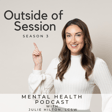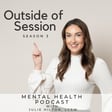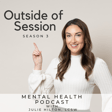
Deconstructing Evangelicalism & Mental Health
In this week's episode, Julie sits down with Liz Mall, host of the podcast Deconstructing the Myth, to discuss how religious trauma, church hurt, and deconstructing evangelicalism impacts mental health. We explore how deeply ingrained teachings can shape identity, self-worth, and emotional well-being, and discuss the challenges and breakthroughs people experience as they begin to question and redefine their faith.
Liz also shares strategies for protecting your peace, healing, and finding hope along the way.
About today's guest:
Liz is the host of Deconstructing the Myth, and holds a M.A. in Christian Apologetics.
Connect with Liz:
Instagram: @deconstructingthemyth
Support DTM's work!
Patreon- Patreon.com/deconstructingthemythPatreon-Patreon.com/deconstructingthemyth




